Spiders
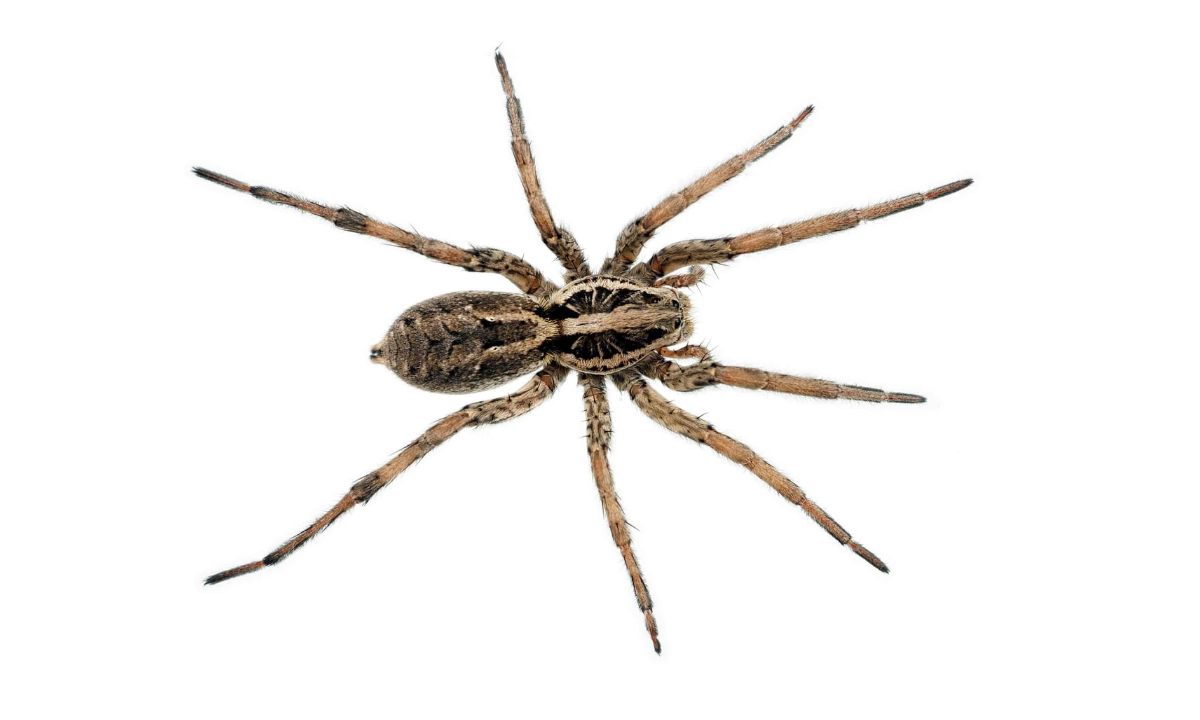
Spiders in Massachusetts
Spiders are a common sight in Massachusetts homes and gardens, and while many people fear them, most spider species are harmless and even beneficial because they help control insect populations. However, that doesn’t mean homeowners want them indoors.
Understanding which spiders you’re dealing with, and whether they pose any risk, is key to keeping your home both safe and comfortable. Massachusetts is home to several spider species, each with unique behaviors and habitats.
Why Spiders Come Indoors
Spiders enter homes for several reasons:
Seeking shelter from extreme weather.
Following prey (other insects) inside.
Finding quiet, undisturbed spots to build webs.
Massachusetts homes near wooded areas, lakes, or fields often see higher spider activity because of the abundance of insects they feed on.

Common Spiders Found in Massachusetts Homes and Yards
While hundreds of spider species exist in the state, only a few are commonly encountered by homeowners. Here’s an in-depth look at the ones you’re most likely to see:
Common House Spider (Parasteatoda tepidariorum)
These small brown or gray spiders are often found in corners, basements, and garages. They build irregular cobwebs and feed on small insects that get trapped in their silk.
Are they dangerous? No, their bites are harmless to humans.
Where do they live? Indoors in undisturbed corners, ceilings, and storage areas.
Prevention Tip: Regular cleaning and vacuuming of corners reduce their presence.
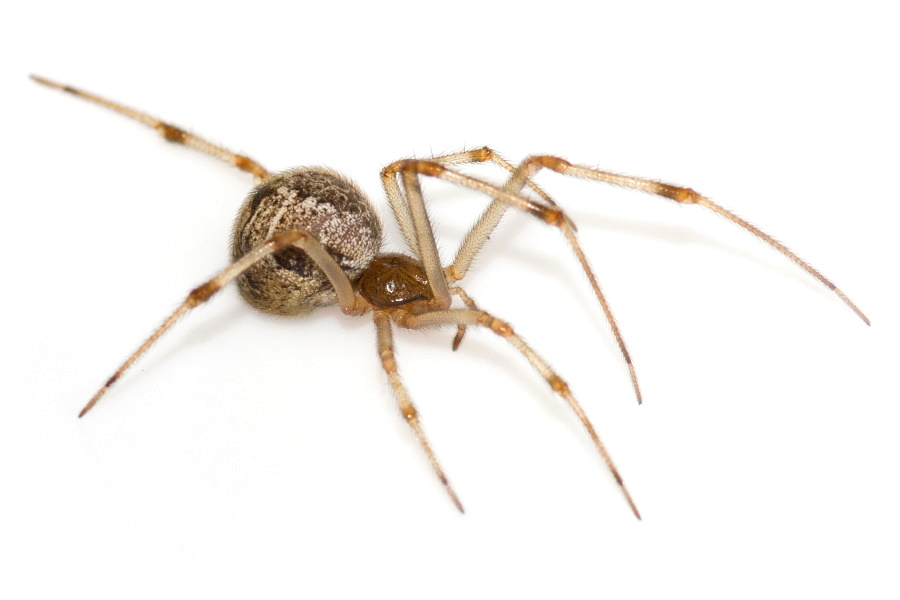
Cellar Spider (Pholcidae family) “Daddy Longlegs”
Known for their long, thin legs, cellar spiders are frequently found in basements, crawl spaces, and sheds. They hang upside down in messy webs and vibrate when disturbed.
Are they dangerous? No, despite myths, their venom is not harmful to humans.
Where do they live? Damp, dark environments like basements.
Prevention Tip: Reduce humidity and remove old webs to deter infestations.
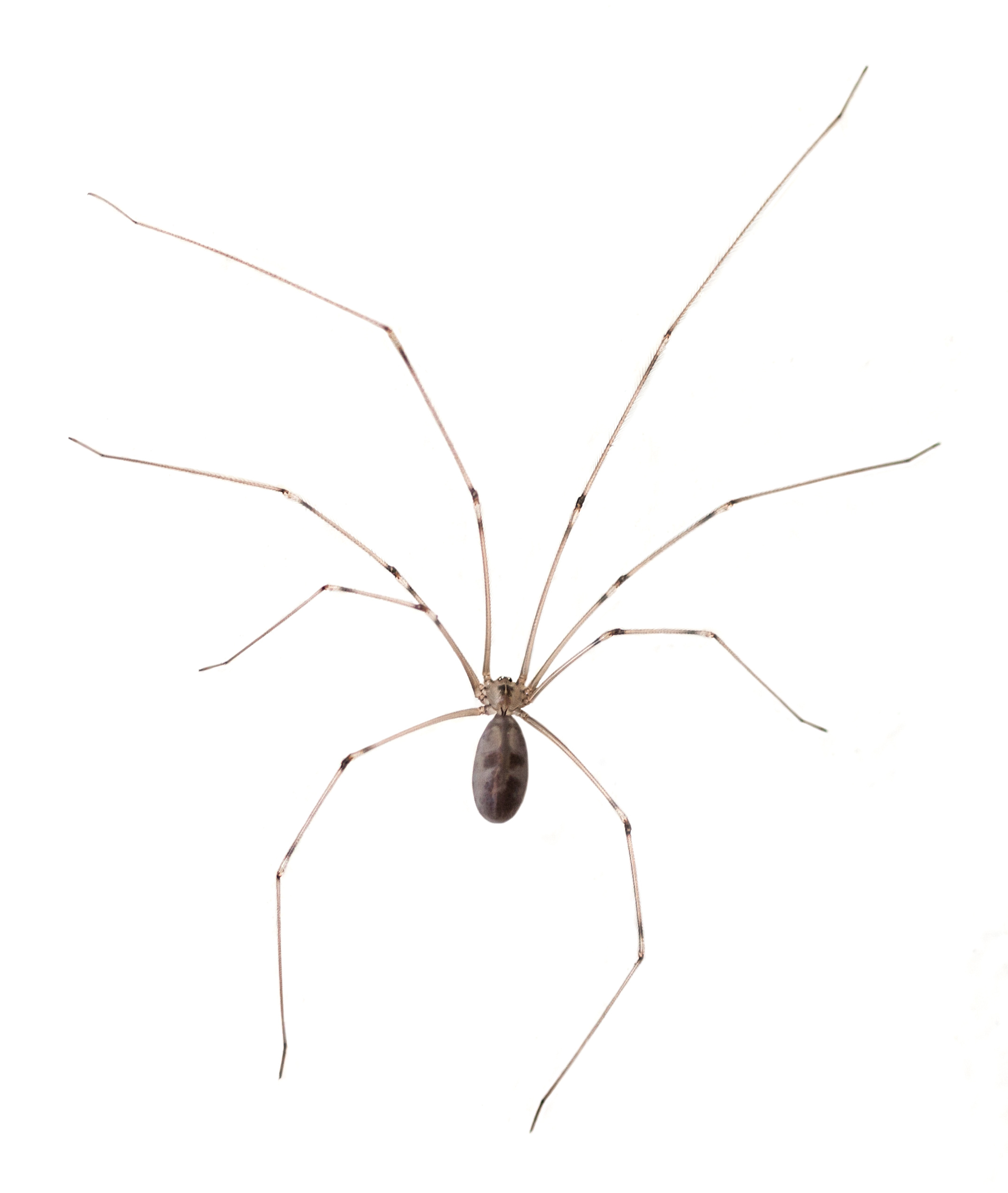
Wolf Spider (Lycosidae family)
Wolf spiders are large, fast-moving hunters that do not build webs. They roam floors, gardens, and sometimes garages at night.
Are they dangerous? Their bites can be painful but are not medically significant.
Where do they live? Outdoors under rocks, logs, or leaf litter; they may wander indoors.
Prevention Tip: Seal cracks and gaps where they may enter, and reduce outdoor debris near your home.

Orb Weaver Spiders (Araneidae family)
Known for their long, thin legs, cellar spiders are frequently found in basements, crawl spaces, and sheds. They hang upside down in messy webs and vibrate when disturbed.
Are they dangerous? No, despite myths, their venom is not harmful to humans.
Where do they live? Damp, dark environments like basements.
Prevention Tip: Reduce humidity and remove old webs to deter infestations.
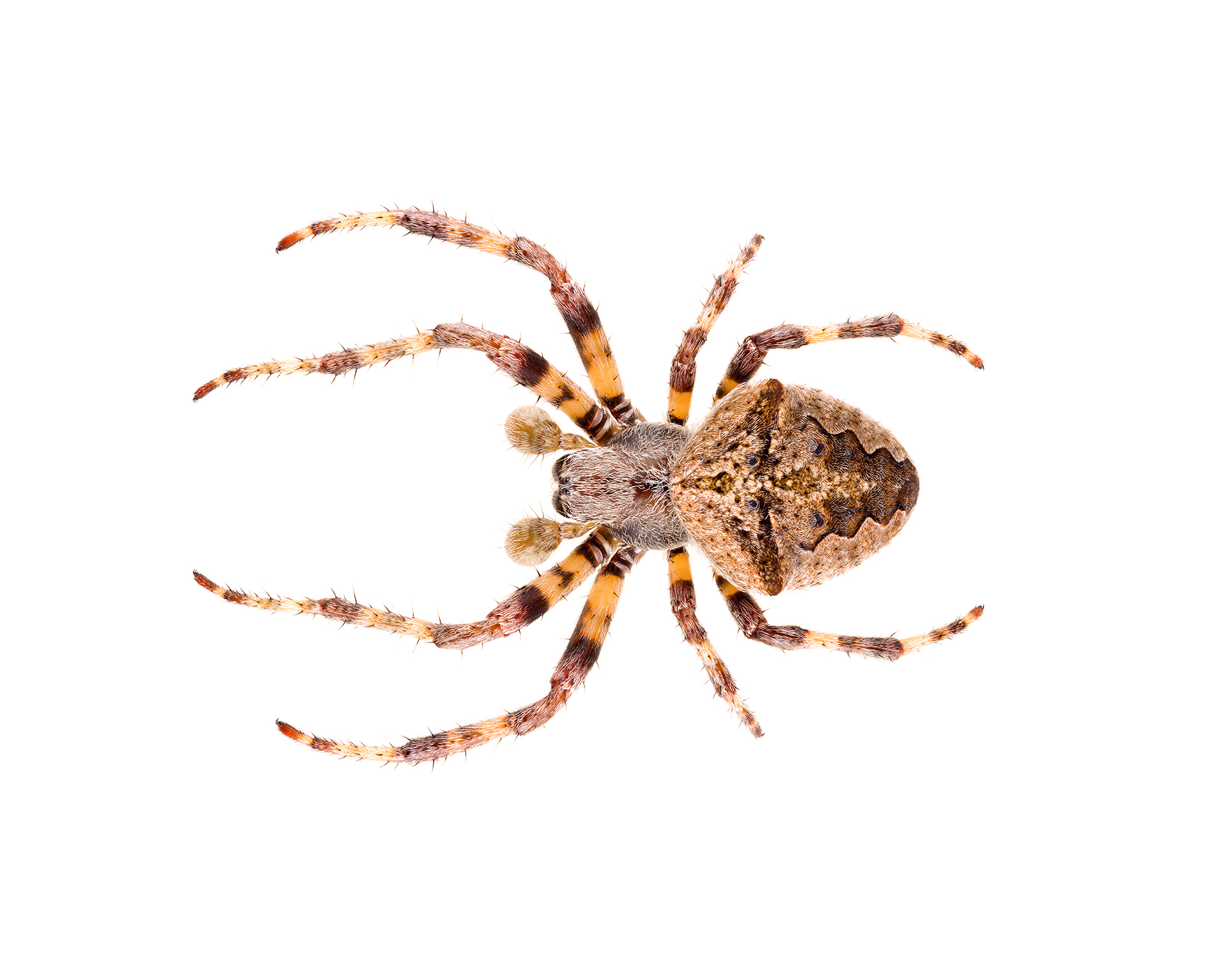
Black Widow Spider (Latrodectus spp.)
Although rare in Massachusetts, black widow sightings occasionally occur, especially in warmer months. They have shiny black bodies with a red hourglass marking on the abdomen.
Are they dangerous? Yes. Their venom is potent, but bites are rare and typically occur only when the spider is handled or threatened.
Where do they live? Dark, undisturbed areas like woodpiles, sheds, and garages.
Prevention Tip: Wear gloves when handling outdoor items and store firewood away from the home.
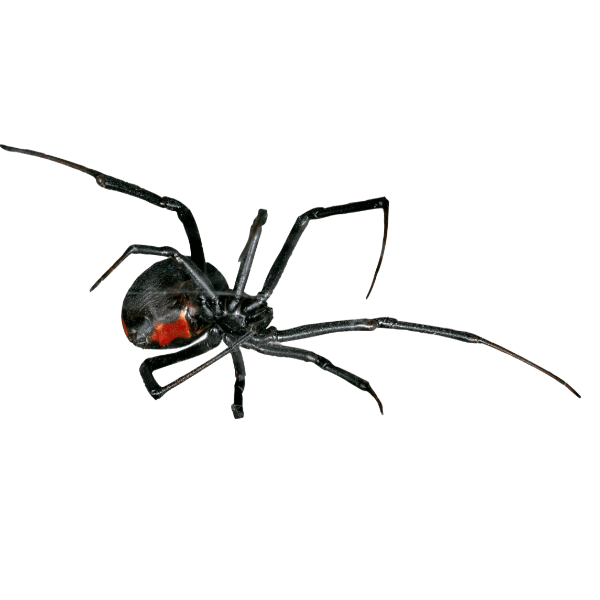
Brown Recluse Spider (Loxosceles reclusa) – Rare but Not Impossible
The brown recluse is not native to Massachusetts, but isolated cases have been reported due to travel or imported goods. They have a violin-shaped marking on their back.
Are they dangerous? Yes. Their bite can cause serious tissue damage, though sightings in MA are extremely rare.
Where do they live? In undisturbed areas—closets, boxes, or under furniture—if introduced.
Prevention Tip: Shake out stored clothing and inspect items brought from other regions.
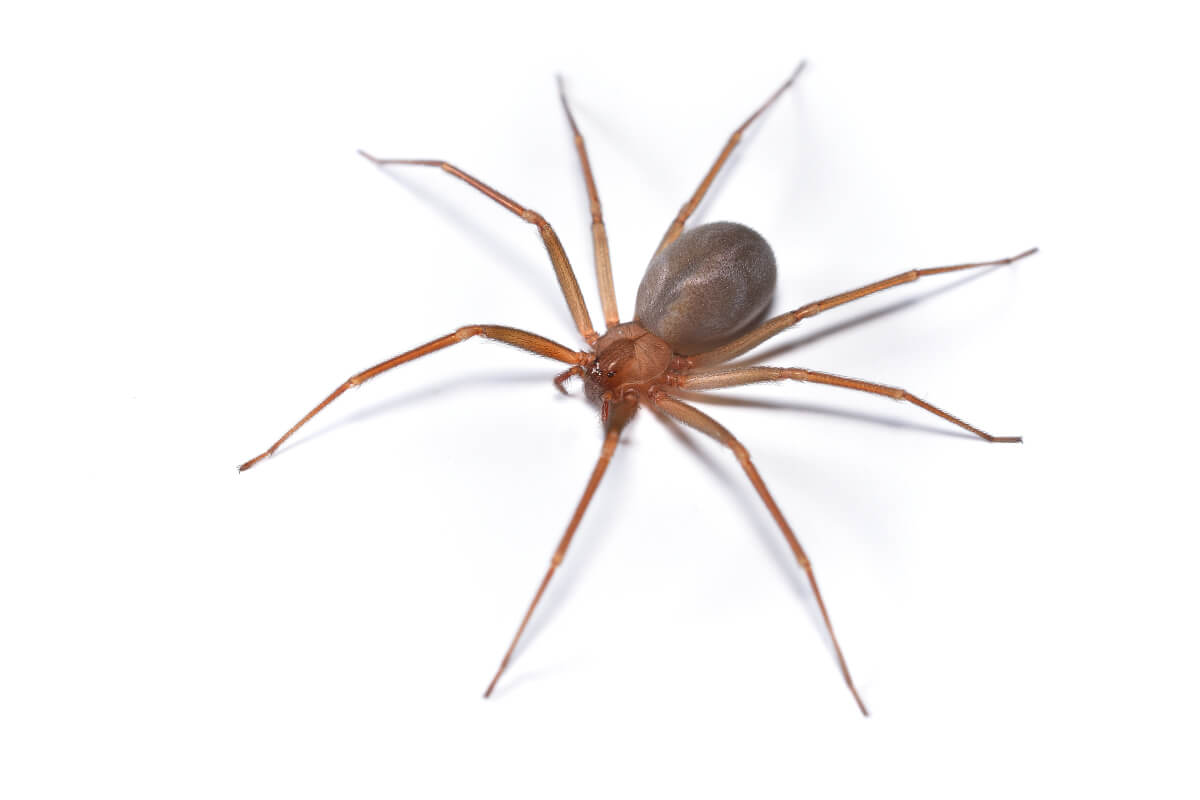
Preventing Spiders in Your Home
Unlike pests that require large-scale treatments, spiders can often be managed with good housekeeping. To keep them away:
Keep storage areas organized and reduce clutter.
Seal cracks and gaps in windows, doors, and foundations.
Remove webs regularly to discourage spiders from rebuilding.
Use yellow outdoor lighting to attract fewer insects, reducing the food source for spiders.
Keep vegetation trimmed back from the home to reduce entry points.
Are Spiders Dangerous in Massachusetts?
For the most part, no. Most spiders in the region are harmless and avoid human interaction. The black widow and brown recluse are the only species of medical concern, and both are uncommon. Still, bites, while rare, can occur if spiders are accidentally pressed against the skin.
If you experience severe symptoms after a bite (such as swelling, pain, or fever), seek medical attention immediately.
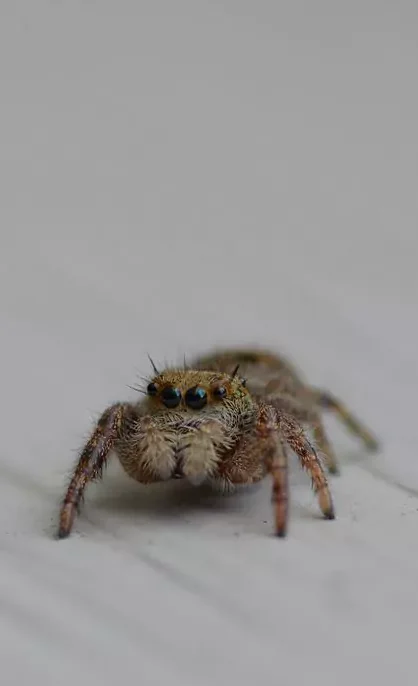
Understanding Spiders
Spiders have long held a place among the most feared household pests. Even for those who don’t consider themselves arachnophobic, the sudden appearance of a large spider crawling across the floor can cause an immediate reaction of unease. Their swift movements, unsettling appearance, and in some cases, potential danger contribute to the discomfort many feel when sharing their home with these eight-legged creatures.
What Are Spiders and How Do They Differ from Other Arachnids?
Spiders belong to a class of animals known as arachnids, which also includes scorpions, mites, and ticks. Unlike insects, which have six legs and three body segments, spiders have:
Eight jointed legs
Two main body sections (the cephalothorax and abdomen)
No wings or antennae
An exoskeleton
Simple eyes rather than compound eyes
Globally, there are more than 45,000 known species of spiders, each adapted to a wide range of environments, from dense forests to deserts and even human dwellings. Here in the United States, and particularly in Massachusetts, only a handful of species are commonly encountered around homes.
Size, Color, and Diversity
Spiders come in an astonishing range of shapes and sizes. Some species are barely visible to the naked eye, measuring as small as 0.01 inches, while others, in other parts of the world, can have a leg span approaching a foot. Their colors can range from muted browns and grays to vivid patterns and bright hues, and some species are covered in hair-like structures, while others are smooth and glossy.
Despite these differences, all spiders share one remarkable trait: the ability to produce silk. This silk can be used for many purposes like building webs, wrapping prey, creating egg sacs, or even forming draglines for movement. However, contrary to popular belief, not all spiders use webs to catch their food. Some actively hunt their prey, relying on stealth, speed, and venom to subdue it.
The Role of Venom in a Spider’s Life
Another trait most spiders share is the presence of venom glands. While the word “venomous” often causes alarm, the reality is that the vast majority of spider species pose no danger to humans. Their venom is primarily designed to immobilize and digest their insect prey, not to harm large animals like us.
In fact, only a small number of spiders worldwide have venom potent enough to cause serious reactions in humans. In Massachusetts, dangerous species are extremely rare. For most spiders you might encounter in your home, a bite (if it happens at all) is comparable to a mild insect sting, uncomfortable, but not dangerous.
When to Consider Professional Help
Most spider sightings don’t require professional treatment. However, if you’re noticing large numbers of spiders indoors, it may be a sign of another pest problem (such as insects they feed on) or an entry point issue. ServPest’s inspections help identify these underlying causes while safely reducing spider populations when needed.
It may sound strange, but spiders are beneficial in many ways. They help keep populations of flies, mosquitoes, and other insects under control, reducing the number of pests that might otherwise invade your home. In gardens, orb-weaving spiders play an important role in maintaining a natural balance by catching harmful pests that damage plants.
However, just because they’re beneficial outdoors doesn’t mean you have to tolerate them indoors.
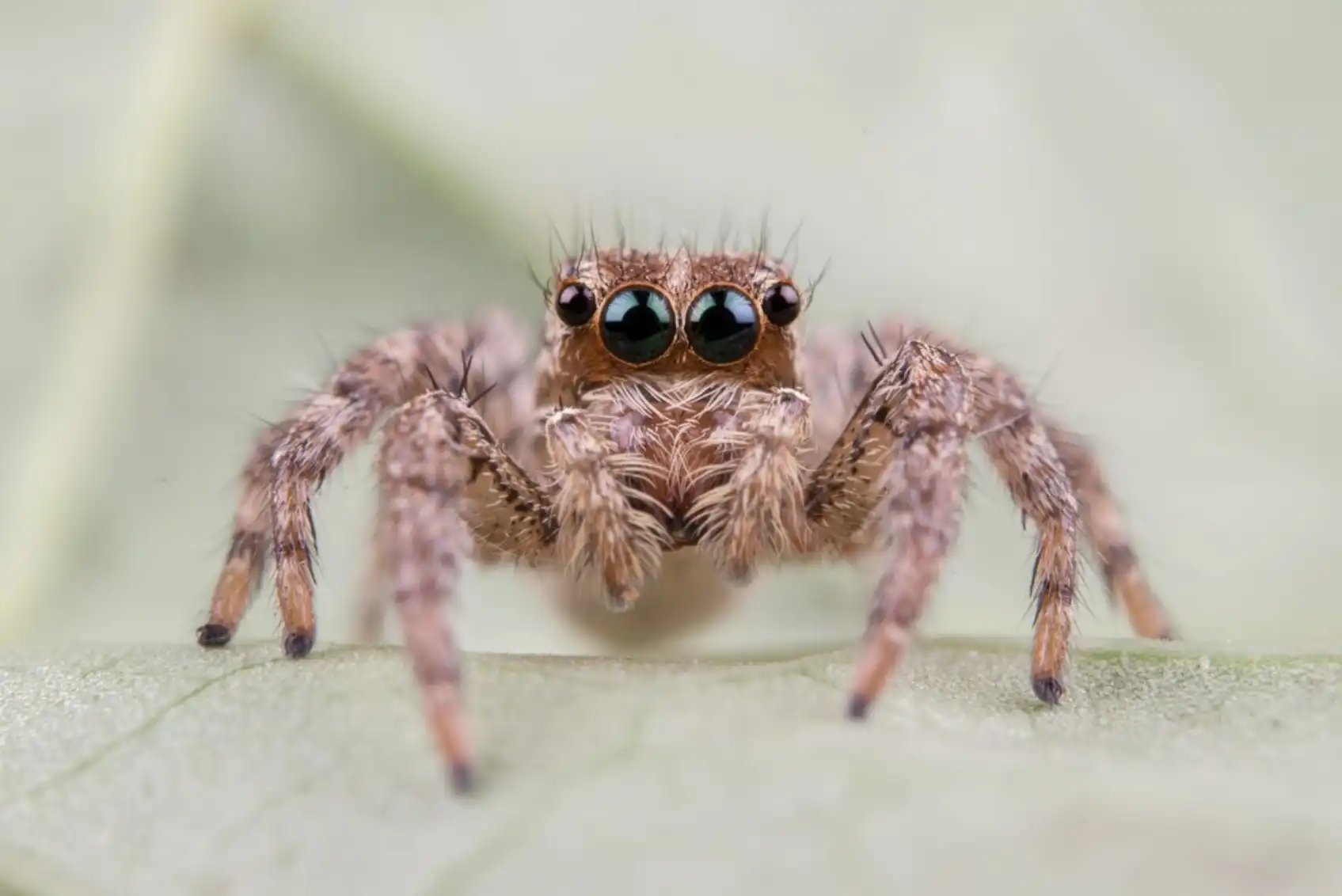
FAQs About Spiders in Massachusetts
No. They are solitary hunters and do not form large colonies.
Fall is mating season for many spiders, so they become more active and visible.
They prefer undisturbed areas, not active sleeping spaces.
Leave it alone and contact pest control to safely remove it.
Yes, spiders feed on many insects, making them a natural form of pest control outdoors.
Local Expert in Spider Management
Barnstable County, MA
Plymouth County, MA
Mon - Fri 7:00 am - 7:00 pm
Sat 8:00 am - 3:00 pm
Sun: Closed
Operation Hours: Mon-Sat: 7am - 7pm
Office: (508) 815-4842
Alternate: (508) 815-3114
info@servpest.com

